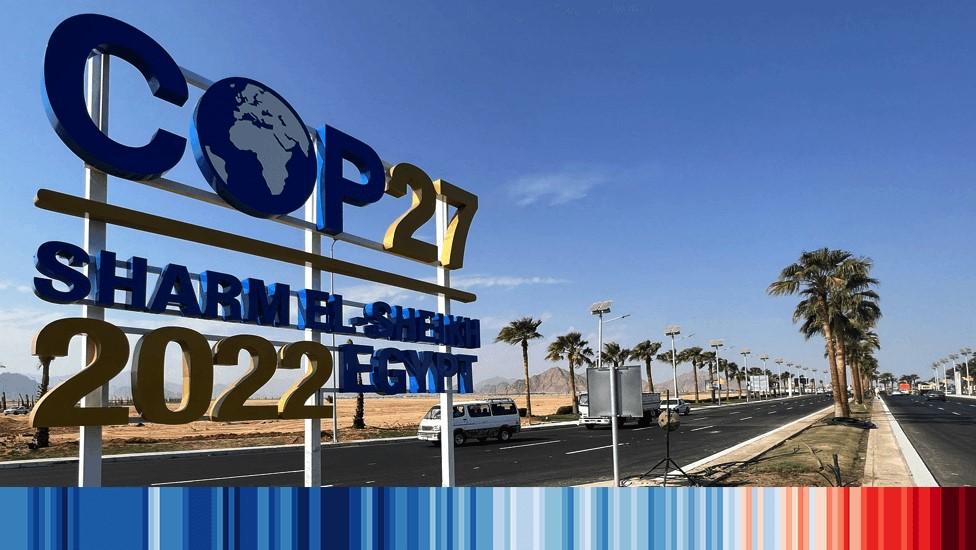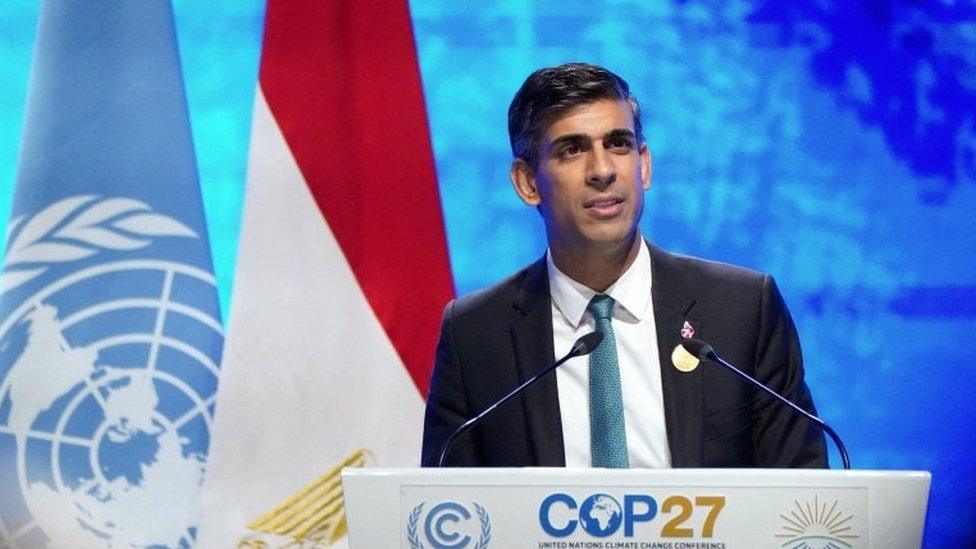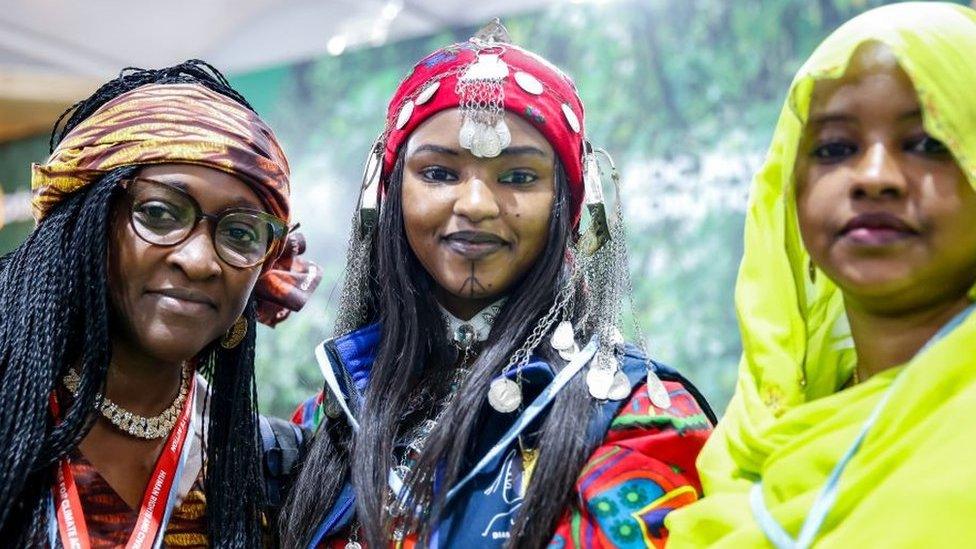COP27: Prime Minister Rishi Sunak gives first speech to world leaders at climate summit
- Published
- comments

This year's summit is taking place in the Egyptian resort of Sharm el-Sheikh
The UK's new Prime Minister Rishi Sunak has given his first international speech to world leaders at COP27, the annual UN climate summit.
In it he said there was "room for hope" and urged the world to come together in this common cause.
Leaders from 120 countries are meeting in the Egyptian resort of Sharm el-Sheikh to discuss the next steps in curbing climate change.
Although climate activist Greta Thunberg is staying away from the summit, after she accused the UN of "greenwashing", many other youth activists are attending.
But what else happened on the first full day of COP? Keep reading to find out everything you need to know.
Rishi Sunak speech

Rishi Sunak began his speech at the COP27 climate summit by saying said he believes the world can deliver on its climate promises.
Referring to last year's summit in Scotland, the prime minister said: "I believe we found room for hope in Glasgow.
He added that he believed the world could deliver the plan that would limit global temperature rises to 1.5 degrees.
Mr Sunak also stressed that moving away from fossil fuels can deliver jobs in green industries.
He also announced that the UK is tripling its funding to help nations adapt to the impacts of climate change.
'We are in the fight of our lives'

More than 30,000 people from around the world are expected to attend the climate summit
Earlier the UN's Secretary-General Antonio Guterres responded to a new report by the organisation that found that the past eight years were on track to be the warmest on record.
The summit opened with him warning that our planet is "sending a distress signal" and that "polluters must pay" for the damage they cause.
Key topics due to be discussed at the summit over the next two weeks include compensation and support for the most-affected countries.
Some of the world's poorest nations have been worst affected by climate change despite only producing a small percentage of carbon emissions.
They have been wanting richer countries that built their economies on fossil fuels to pay for the impacts of their carbon footprint.
But the issue has been highly controversial and hasn't been previously discussed until now.
